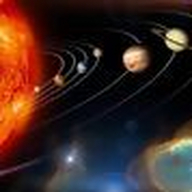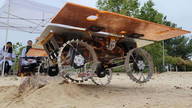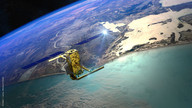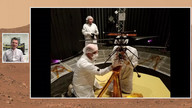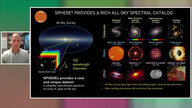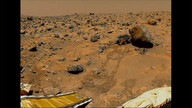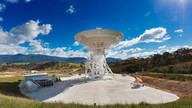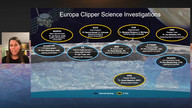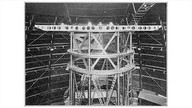How NASA’s Team of Autonomous Mini Rovers Will Explore the Moon
A team of rovers will soon be working together to explore the Moon – autonomously! NASA’s CADRE (Cooperative Autonomous Distributed Robotic Exploration) technology demonstration is sending three small rovers – each about the size of a carry-on suitcase – as an experiment to map and explore the lunar surface. The tech demo marks NASA’s first fully autonomous space mission involving multiple rovers working together.
The solar-powered rovers will test novel, JPL-developed autonomy software, using it to elect a “leader,” make decisions, and carry out tasks assigned by the leader — all without the need for constant direction from human mission controllers. They will use mesh network radios to communicate with each other and their base station, which will remain aboard a commercial lunar lander that will relay data to Earth.
CADRE also will show how teams of robots can collaborate to take simultaneous scientific measurements from different locations, gathering data that would be impossible for a single robot to record. The tech demo could pave the way for autonomous, multi-robot missions that change how celestial bodies are explored.
Join us as we discuss the amazing potential of CADRE with project manager, Subha Comandur, and principal investigator, Dr. Jean-Pierre de la Croix.
Speakers:
- Subha Comandur, CADRE project manager, NASA JPL
- Dr. Jean-Pierre de la Croix, CADRE principal investigator, NASA JPL
Host:
- Nikki Wyrick, communications and education directorate, NASA JPL
Co-host:
- Sandy Marshall, solar system public engagement specialist, NASA JPL
